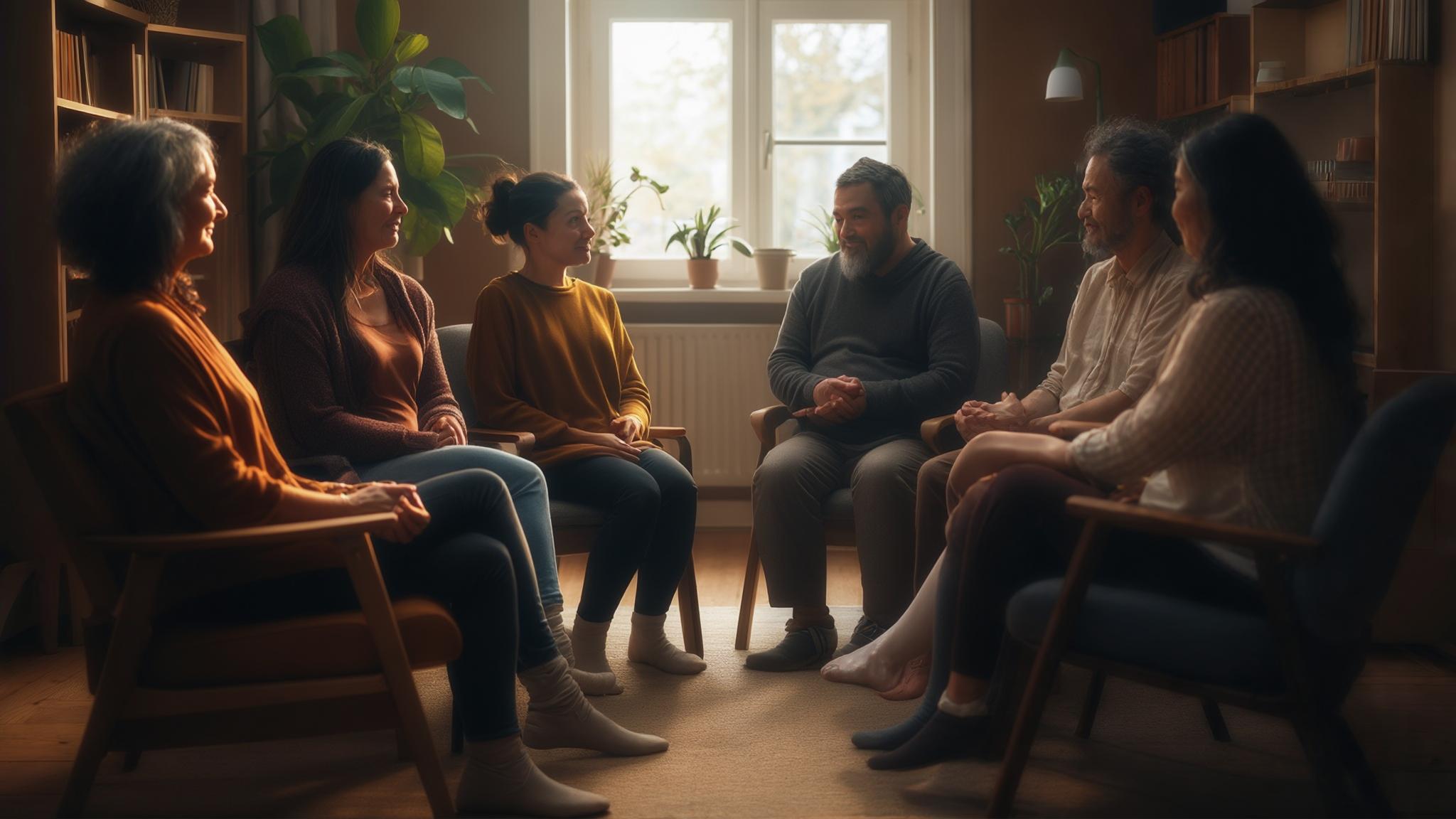Introduction
Group therapy is a form of psychotherapy where a small group of individuals gather to discuss their experiences and support one another under the guidance of a trained therapist. This collaborative environment can provide unique benefits not found in individual therapy. In this article, we will explore the intricacies of group therapy, its advantages, and how it can complement more traditional therapeutic methods.
Defining Group Therapy and Its Unique Value
Group therapy involves a structured format where members share personal stories or concerns while others listen and provide feedback. This setting cultivates a sense of community and belonging that many find comforting. The therapist facilitates discussions, ensuring that everyone has the opportunity to speak while also guiding the group to stay focused on relevant topics. This unique value stems from its ability to leverage the collective experiences of the group, creating an environment where individuals can find solace in understanding that they are not alone in their struggles.
Benefits of Group Therapy
Reducing Isolation
One of the most significant benefits of group therapy is its ability to reduce feelings of isolation. Many individuals struggling with mental health issues often feel disconnected from others, leading to loneliness. Group therapy fosters an atmosphere where people can openly share their challenges, creating a sense of belonging. This shared experience can be incredibly validating, reinforcing that they are not alone in their feelings.
Shared Understanding
Participants in group therapy often find comfort in the shared understanding of their problems. Hearing others articulate feelings and experiences that resonate with their own can be a powerful catalyst for healing. The validation and empathy received from peers can lead to increased self-acceptance and understanding, helping individuals to articulate their thoughts and emotions more clearly.
Building Community
The community aspect of group therapy is invaluable. It creates a support system where members can connect with one another outside of therapeutic sessions, fostering friendships and deeper connections. This social network can provide encouragement and accountability, motivating individuals to work towards their therapeutic goals.
How Group Therapy Complements Individual Therapy
Group therapy can serve as a powerful complement to individual therapy. While individual sessions allow for deep personal exploration and tailored interventions, group therapy provides broad perspectives and social support.
Advantages of Combined Therapeutic Approaches
Combining both therapeutic approaches can enhance the healing process. Individual therapy can facilitate personal breakthroughs, while group therapy can reinforce those insights through shared experiences. This combination allows individuals to apply what they learn in a supportive community, further solidifying their progress and easing the transition into practical, everyday situations.
Common Misconceptions About Group Therapy
Despite its numerous benefits, group therapy is often misunderstood.
Addressing Fears or Misunderstandings
Common misconceptions include:
- Fear of Judgment: Many worry that sharing personal struggles in front of others will result in judgment. However, group settings are designed to be safe and confidential.
- Lack of Individual Attention: Some believe they won't get the customized care they need. However, a skilled therapist will ensure each member's voice is heard and respected.
- Ineffectiveness for Serious Issues: Many think group therapy isn't suitable for severe disorders, but many professionals advocate for its effectiveness across a range of issues, from anxiety to depression to trauma.
Addressing these fears upfront can help demystify group therapy and encourage those who need it to seek the support they deserve.
Finding the Right Group for You
Finding the right group can make a significant difference in the therapeutic experience. Here are some tips:
- Research: Look into various groups in your area, considering their focus, structure, and therapist qualifications.
- Feel Out the Environment: If possible, attend a trial session to see if the group dynamic works for you.
- Check for Specialization: Some groups focus on specific issues, while others address a broader range of experiences. Finding the right focus that aligns with your needs is crucial.
- Trust Your Instincts: Ultimately, choose a group where you feel comfortable and safe sharing your experiences.
Conclusion
Group therapy offers an effective, supportive resource for individuals looking to understand and heal through shared experiences. By embracing the collective journey, individuals can find the encouragement and strength to overcome their challenges. If you’re considering seeking therapy, explore group therapy as a valuable option in your mental health journey.

